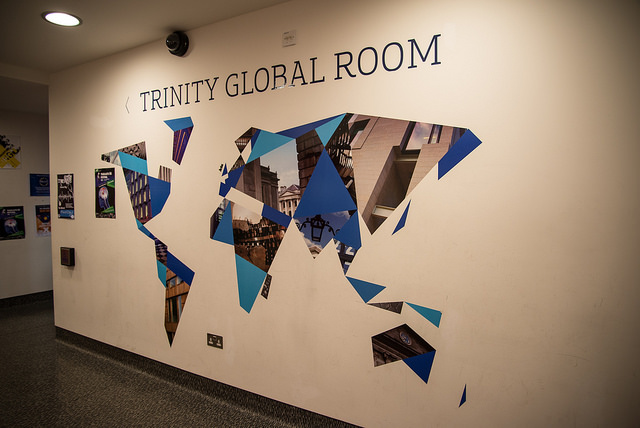College has opted to break ties with the current providers of its pre-undergraduate preparation scheme for non-EU students, Study Group International, in favour of a new “International Foundation Programme”, to be delivered by Marino Institute of Education.
The existing programme, which for the last five years has been operated by Study Group International, was found to have failed to meet its targets, with regard to adequately preparing international students for undergraduate study in college.
Study Group International is a private company operating in partnership with over 45 universities around the world and according to its website, “prepares students for life in a global society and success in a global economy”.
In the proposal for the new “International Foundation Programme” at the Marino Institute, which will be overseen by College, poor progression rates from the preparation scheme to Trinity courses were cited as the key reason for ending the partnership with Study Group International.
Speaking to The University Times about the advantages of the new programme, the Registrar of the Marino Institute, Dr Sean Delaney, said: “There is very much a Trinity input and consultation built right into the structure of the programme now, and the students will get student cards and everything like that when they begin.”
Delaney also noted the tradition of higher learning that exists in Marino, which has been providing education since its establishment in 1881.
The proposed programme is designed to teach students who have left school with qualifications that do not meet Trinity matriculation levels and whose proficiency in English is insufficient, but nonetheless are academically capable.
The new course, which was devised with Trinity destinations and accredited courses in mind, places particular emphasis on improving students’ English and enhancing their discipline-specific academic knowledge.
The programme aims to furnish participants with these skills, as well as with more ‘“generic graduate skills” through a combination of examinations, assignments and independent study projects, similar to those carried out by Trinity undergraduates.
Under the new scheme, there are two pathways offered to students, a business stream and a science, technology, engineering and maths (STEM) stream, which will eventually qualify successful participants to undertake undergraduate study in either of these two areas.
Destination courses, which students in the programme should progress to upon completion, include BESS, PPES, and a variety of science-based courses, including, for example, nanoscience and theoretical physics. The programme will also allow entry into a number of programmes already offered by the Marino Institute, such as their BSc in Education Studies. Intake will, however, be limited to 30 students.
Delaney stressed the particular advantage of Trinity’s increased involvement in the programme, noting the benefit of allowing the lecturers who will ultimately teach these students to have a say in the preparation those students undergo. Under the course previously run by Study Group International, this was not possible.
The scheme hopes to accommodate the “demand for a ‘Western’ undergraduate education” that exists amongst secondary school leavers in target regions such as the Middle East, China, Southeast Asia and Africa by emulating access pathways already provided by institutions such as Maynooth University and Dublin City University.
This new course comes as College seeks to become a more attractive option for non-EU students and to increase the number of these students from 7.9 per cent in 2012 to College’s goal of 18 per cent in 2019. Last week, The University Times reported that Trinity was ranked as the 40th “most international university” in the world by Times Higher Education, a 10 place drop since 2013.
Trinity also hopes that the new programme will strengthen ties with Marino Institute of Education, which has been an associated college of the university since the mid 1970s. The course has already begun enrolling for the coming academic year.







